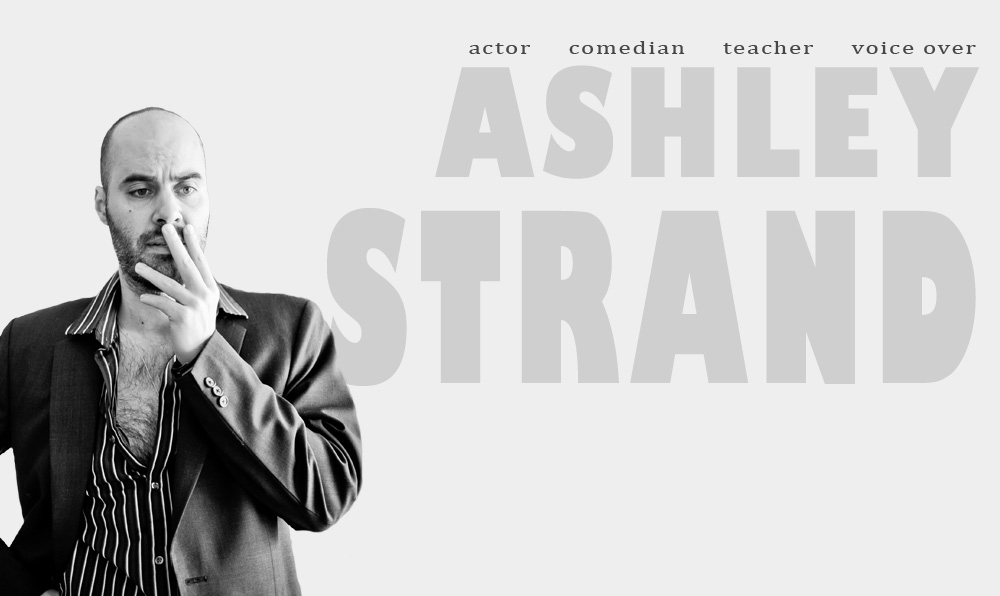Theatre and Culture from Scotland, starring The List's Theatre Editor, his performance persona and occasional guest stars. Experimental writings, cod-academic critiques and all his opinions, stolen or original.
Saturday, 9 June 2012
Ashley Strand
Even if Ashley Strand took the advice of a rival critic to go solo this year - and his work falls close to the comic category which I am determined to fight as it dominates the Fringe, Glorified Disasters boasts of a story-telling background. So I decided to shout across the Atlantic, and find out why I ought to put aside my prejudices against the funny.
"Since when is comedy not serious?" he asks me. "Have all the colours of human emotion, expression, and experience been ranked in order of seriousness and I wasn't told? Have we also decided that "seriousness" is the measure of a thing's value?"
It's at this point that I realise that keeping my Saturday Night Decision Making Sessions informal and secret might have a negative effect. Having been given a huge grant to delineate the worth of all human art to a mathematical formula by the Illuminati, I assumed I had better not allow the results to leak out, lest they cause a panic. But then, the public aren't aware of the true Worth of any art...
"Gee, I've missed so much," muses Strand. Fortunately, he is smart enough to have a fairly good guess. "So what came in first? Interpretive dance? Opera? Are we sick of Hamlet yet, or did tragedy win again? Ooh wait, I know, is it something intellectual and self-aggrandising like Tom Stoppard? Did the people who like to congratulate themselves for getting all his references vote Stoppard into the top spot? Kabuki? Is it Kabuki?"
Realising that I don't tend to get Stoppard's references - and prefer to laugh at the Funny Man in the Tights, I move swiftly onto Glorious Disasters. Weaving tales of consumerism, a party in Belgium, toilet paper, children's theatre and sibling rivalry into a performance, Strand does avoids the easy categorisation that makes my life easier when I come to tag my articles.
"What I do occupies a territory that hasn't quite been defined yet: I think as a cross between stand-up and storytelling," he explains. "For people who find comedy too frivolous and drama too heavy, I think my show will be very rewarding. I really think that my show can work in a club, concert, or theatre setting. Someone just has to let those different audiences know they have some likes in common -- me, I guess."
Audiences are easily pleased - or at least willing to experience the performance rather than worry about the particular genre. But that does not account for the specific requirements of the Fringe's brochure. "I actually tried to enter under the theatre category this year, because last year I found myself having to warm the audience up with jokes before launching into my stories," Strand recalls. "Comedy audiences generally need quick gratification up front to have confidence in a performer, whereas theatre audiences are accustomed to delayed gratification."
"My request to enter under the theatre category was declined, however, along with a very helpful definition from PBH: "three (or however many) stories by themselves aren't theatre section; a play with a plot and action would be." I briefly considered asking him for his definition of "fringe," and whether any part of it contained the notion of "a place to experiment with form and presentation," but then I thought, "why waste a comeback on an email, when I can save it for an interview ...." In other news, German Expressionism has been banned from the Free Fringe theatre section."
As Strand continues to talk about his performances, I become more interested in the thought behind his work - I may never abandon the avant garde for stand up, but there seems to be a more intelligent process behind Glorious Disasters than in the average hour of jokes and audience baiting. In particular, he steers clear of the fashionable comic trend for attacking anyone who isn't likely to punch back.
"I don't want to give anything away about my show, but the general rule is: "when Ashley suffers, everybody laughs." More specifically, I like to be transported into someone else's experience of an event when I go to a show." And because I'm a pathological over-thinker, I process things at a different speed than most people, which is to say, more slowly."
In Strand's performance, the story is less important than the way it is told: "If I restricted my stories to major plot points, they'd barely fill five minutes, but the style of delivery is elaboration to the point of distraction." And this links back to his interest in his intentions for the show. "If I do it right, puts the audience in my head for a little while, and how I get myself into those situations suddenly makes a crazy kind of sense. Richard Pryor's work was underpinned by a profound vulnerability and an unflinching emotional honesty: he's my comedy hero and my biggest influence."
60 min; Aug 4-13 and 16-27 at 21:00;
venue #156, The Music Room at The Banshee Labyrinth, 35 Niddry St. This is a free show.
Labels:
ashley strand
,
comedy
,
Fringe 2012
,
glorious disasters
,
storytelling
Subscribe to:
Post Comments
(
Atom
)

No comments :
Post a Comment